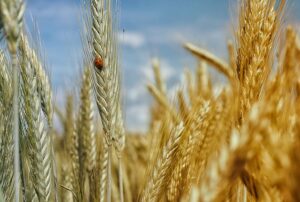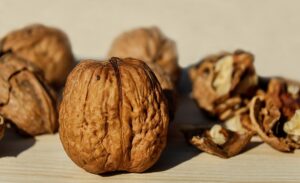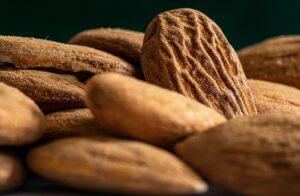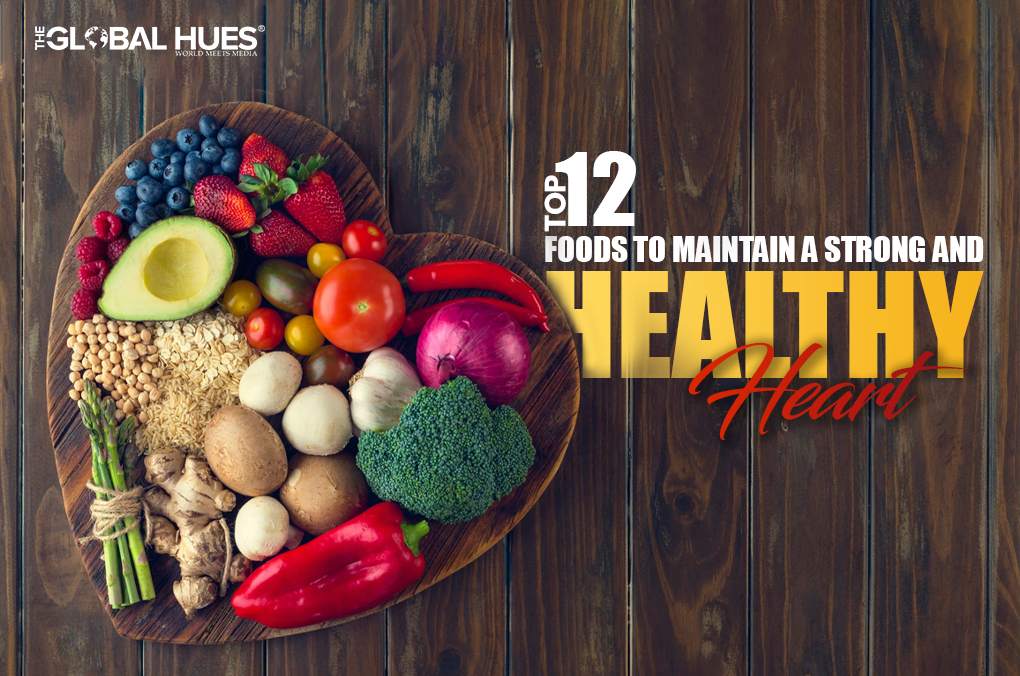“No beauty shines brighter than a healthy heart.”
Due to a growing trend toward sedentary lifestyles, the younger generation is facing a rising risk of heart attacks. According to recent statistics, 25 per cent of heart attacks occur in individuals under the age of 40. It is crucial to prioritize a nutritious diet and regular exercise to maintain a healthy heart.
In this article, we will explore the top twelve foods that contribute to a healthy heart.
Top 12 Foods For A Healthy Heart
-
Leafy Vegetables
Green Vegetables like spinach, kale, and collard greens are a mine of vitamins, minerals, and antioxidants. These leafy vegetables are a great source of Vitamin K, which helps protect your arteries. They also have high amounts of dietary nitrates, which reduce blood pressure, decrease arterial stiffness and improve the functions of cells lining the blood vessels. According to the American Heart Association (AHA), increasing the intake of green vegetables benefits cardiovascular health and lowers the risk of heart disease.
Also Read: Top 10 Benefits of Regular Walking
-
Wholegrains

Common whole grains are whole wheat, brown rice, oats, barley, buckwheat and quinoa. Having refined carbohydrates increases the risk of heart disease. On the other hand, eating whole grains reduces the risk of coronary heart disease, cardiovascular disease, stroke, and metabolic syndrome. Intake of whole grains helps manage and prevent hypertension.
-
Berries
Fruits like strawberries, blueberries, blackberries, and raspberries are jam-packed with nutrients. Berries are rich in antioxidants called ‘anthocyanins’, which protect against oxidative stress and inflammation. Eating blueberries improves vascular function, which helps control blood pressure and blood clotting.
Also Read: Top 4 Ingredients for a Healthy Smoothie
-
Avocados
Avocados contain heart-healthy monounsaturated fats linked to reduced cholesterol levels and lower risk of heart disease. According to a study, avocados help lower bad cholesterol and improve vascular function and triglyceride levels. They are rich in potassium, a nutrient essential for heart health and reduces blood pressure.
-
Walnuts

Walnuts are a great source of fibre and micronutrients like magnesium, copper, and manganese. Incorporating a few servings of walnuts protects the heart. Diets which have walnuts included in them help decrease the bad cholesterol. They are a source of omega-3 fatty acids and reduce inflammation, improve cholesterol balance, and reduce the risk of metabolic syndrome and cardiovascular disease.
-
Tomatoes
Tomatoes have lycopene, a plant pigment with antioxidant properties. Antioxidants help neutralise free radicals, prevent oxidative damage and reduce inflammation contributing to heart disease. Intake of tomato products and lycopene supplements positively affects blood lipids, blood pressure, and endothelial function. Good cholesterol helps remove excess cholesterol and plaque from arteries to keep your heart healthy and protect against heart disease and stroke.
-
Almonds

Almonds are sources of monosaturated fats and fibre, two nutrients that help protect the heart. Eating almonds increases the good cholesterol in your heart, which helps reduce plaque buildup. As they are rich in vitamin E, proteins, Polyunsaturated fatty acids (PUFAs), Mono-unsaturated fatty acids (MUFAs), magnesium, potassium, and dietary fibres, eating almonds can do wonders for your heart.
-
Asparagus
Asparagus is a natural source of folate, which prevents the building of homocysteine in the body. The high levels of homocysteine in the body increase the risk of coronary artery disease and stroke. The insoluble fibre in asparagus binds to the cholesterol found in your system and removes it before the body can absorb it.
-
Chia Seeds And Flaxseeds
These seeds are rich sources of omega-3 fatty acids such as alpha-linolenic acid. Omega 3 reduces the levels of triglycerides, LDL, and total cholesterol. These seeds help lower blood pressure and minimise the buildup of fatty plaques in the arteries. Omega 3 decreases the risk of disorders such as thrombosis and arrhythmias.
-
Oatmeal
Oatmeal is high in soluble fibre, which helps to lower cholesterol. According to some dieticians, oatmeal acts as a sponge in the digestive tract and soaks up the cholesterol in the body so that it doesn’t get absorbed into the bloodstream. They also recommend not having instant oatmeal as it contains sugar.
-
Legumes
Legumes such as beans, lentils, and peas are an excellent source of protein without fats. The 2017 review published in Critical Reviews in Food Science and Nutrition found ‘moderate evidence’ of the benefit of legumes in fighting coronary heart disease.
-
Beetroot

Beetroot contains a pigment called ‘betalains’ that gives beetroot its red colour. Betalains offer high antioxidants and anti-inflammatory capabilities. The nitrates in beetroot help dilate the blood vessels to decrease blood pressure. It also helps reduce the overstimulation of the nervous system.
In Conclusion
A sedentary lifestyle can take a toll on our bodies, placing extra strain on our hearts to maintain our health. Fortunately, certain foods rich in antioxidants can help support heart health. Try these foods to maintain a healthy and strong health.




